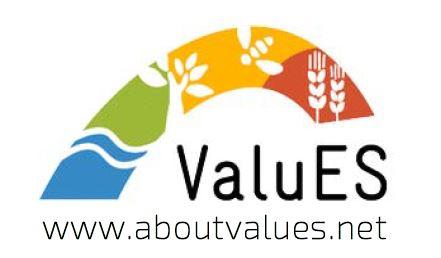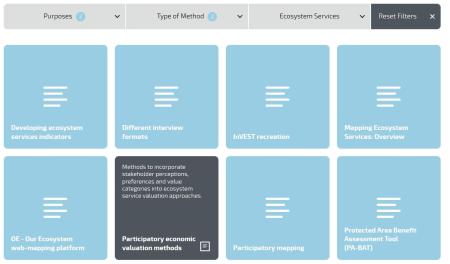
Resource description:
Contrary to other mapping tools, participatory mapping does not primarily draw on statistics or research data, but on the practical knowledge of people. Participatory mapping visualizes local knowledge and makes it visible to all. There are several participatory mapping tools available. In an ecosystem service context the tools can be useful to evaluate how specific ecosystems are perceived and used by local people and who uses them in which way. On this basis it is possible to bring together perspectives and interests of different stakeholders and engage communities to articulate their situation, for example in planning processes. Participatory mapping can also benefit networking and communication, both, among communities and also towards national institutions.
Author/Contact:
ValuES: Methods for integrating ecosystem services into policy, planning, and practice
Deutsche Gesellschaft für Internationale Zusammenarbeit (GIZ) GmbH, Postfach 5180 / P.O. Box 5180, 65726 Eschborn, Deutschland / Germany
T + 49 6196 79-1321, E info@aboutvalues.net
Images
Uses of this resource:
Participatory mapping refers to the collaborative development of maps based on local knowledge and perception, in order to improve capabilities of communities and people to use this knowledge.
Partners:
- Helmholtz Centre for Environmental Research - UFZ
- Conservation Strategy Fund (CSF)
- Federal Ministry for the Environment, Nature Conservation, Building and Nucelar Safety of the Federal Republic of Germany (Funding)
Licence:
- Free, no licence
Development stage:
- Full, working product
